Poetry
Poetry

Undersong
'Undersong is a remarkable poetic document. It comprises a thoroughgoing revision of Lorde's early poems, 1950-1979, along with nine hitherto unpublished poems from that period, and an essay describing the revision process. Readers new to Lorde's work will meet here a major American poet whose concerns are international, and whose words have left their mark on many lives. Readers of "The Black Unicorn", "Sister Outsider", "The Cancer Journals", "A Burst of Light", and "Our Dead Behind Us", and the thousands who have attended her poetry readings and speeches, will recognize in this book the roots and the growing-points of a transformative writer. Never has a poet left so clear and conscious a track of artistic choices made in the trajectory of a life. Far from rewriting old poems to fit a changes historical moment, she has finely rehoned formal elements to illuminate the original poems. Throughout, Lorde's lifelong themes of love and anger, family politics, sexuality, and the body of the city can be seen gathering in power and clarity.' - Adrienne Rich
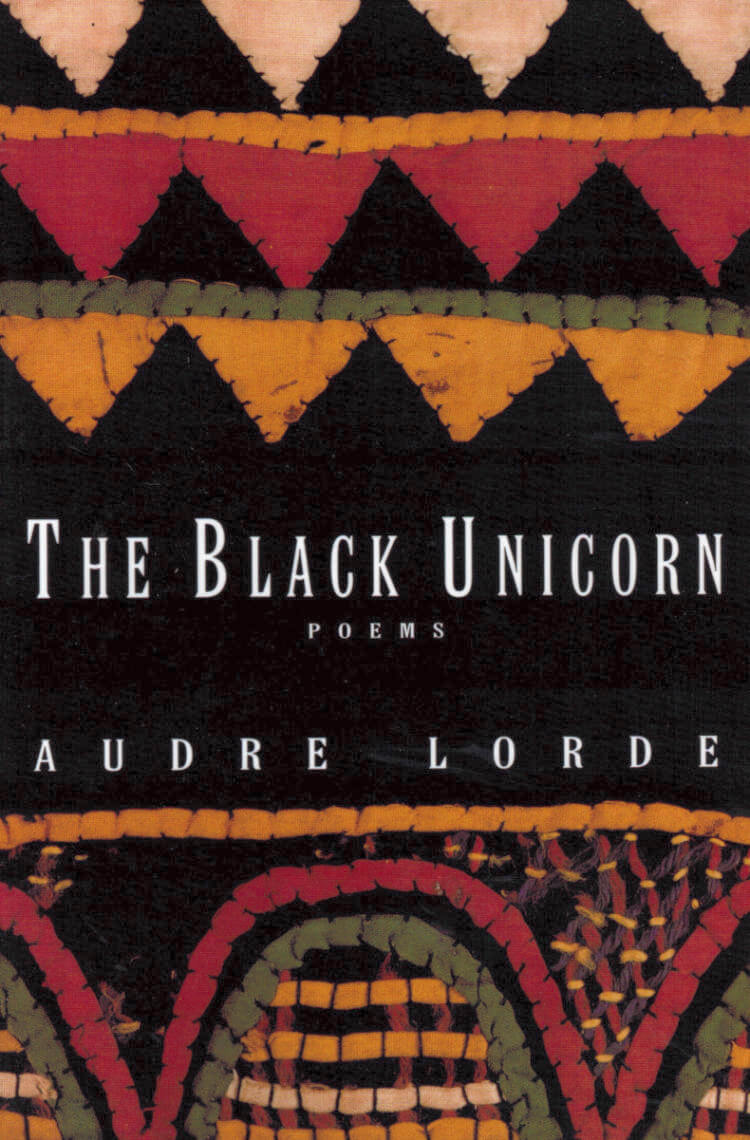
The Black Unicorn
The Black Unicorn is a collection of poems by a woman who, Adrienne Rich writes, "for the complexity of her vision, for her moral courage and the catalytic passion of her language, has already become, for many, an indispensable poet."
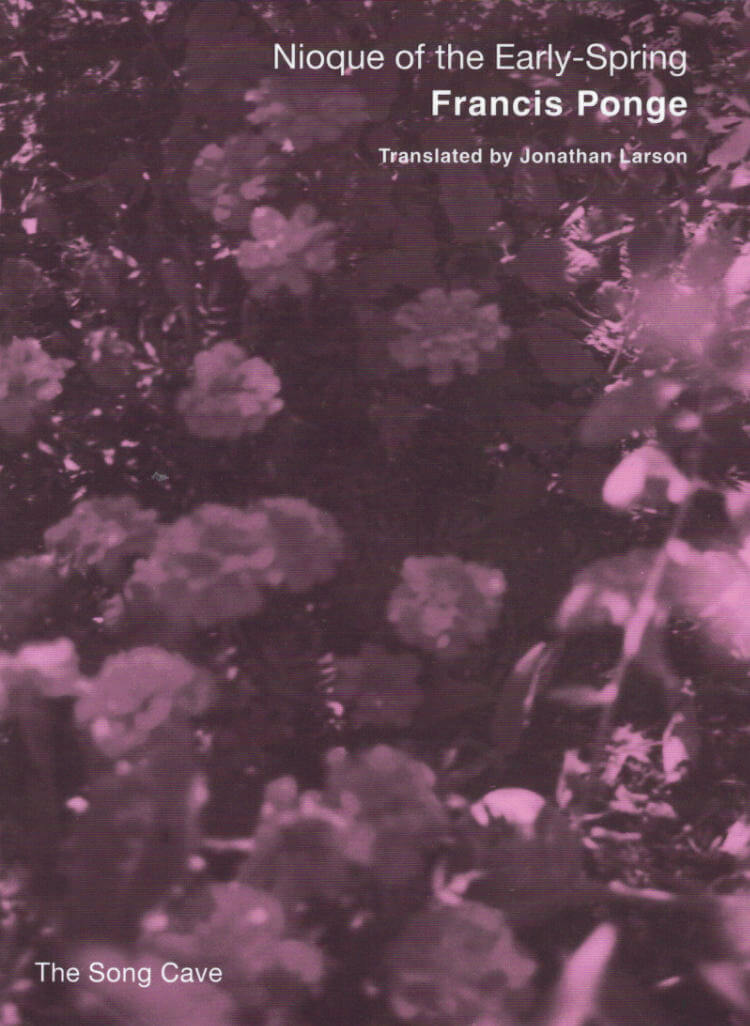
Nioque of the Early-Spring
Translated from the French by Jonathan Larson.
On the 50th anniversary of its publication, The Song Cave presents the first English translation of Francis Ponge's NIOQUE OF THE EARLY-SPRING. Ostensibly a book written to honor the season itself and the cycle of time, upon its first publication in Paris, May 1968, these notes took on a greater metaphorical meaning within this context, addressing the need for new beginnings and revolution.
April is not always the cruelest month. In these stray notations dated early April 1950, Ponge provides a latter-day version of Stravinsky's 'Sacre du printemps' or of William Carlos Williams' 'Spring and All', a vernal enactment of all the resurrectional energies of a spring-time-to-come, as witnessed firsthand at the farmhouse of 'La Fleurie' in southern France. When subsequently published in Tel Que in May 1968, eighteen years later, Ponge's rural, pastoral text now acquired a specific urban history and Utopianism, its Lucretian 'Nioque, ' or gnosis, now speaking to the gnomic revolutionary slogans of the Left Bank barricades: 'Be realistic, demand the impossible, ' 'Beneath the cobblestones, the beach.' Jonathan Larson's careful engagement with Ponge manages to seize what is most prosaic about his poetry—its fierce communism of the ordinary, its insistence that taking the part of things means taking words at their most etymological everydayness. - Richard Sieburth
This startlingly fresh and necessary document of the 1950s by Francis Ponge comes to us via the all too rare feat of true poetic reenactment. Understanding that each poet creates language anew, Jonathan Larson has found a poetics suitable for the occasion of Ponge's own poetic logic In this rendering, Larson's absolute care and attention to syllabic weight and measure, to the syntax and length of each line as it unwinds, allows us—as readers—to come into the drama of a text newly made, in other words, to discover a new poem in its very making. Yet, none of this comes at the cost of accuracy or through the subjugation of the original at the hands of one wielding the imperial language This is no mean feat in this day and age and, by way of Larson's exquisite ear, we are again given the poignancy and urgency of Ponge's own moment. - Ammiel Alcalay
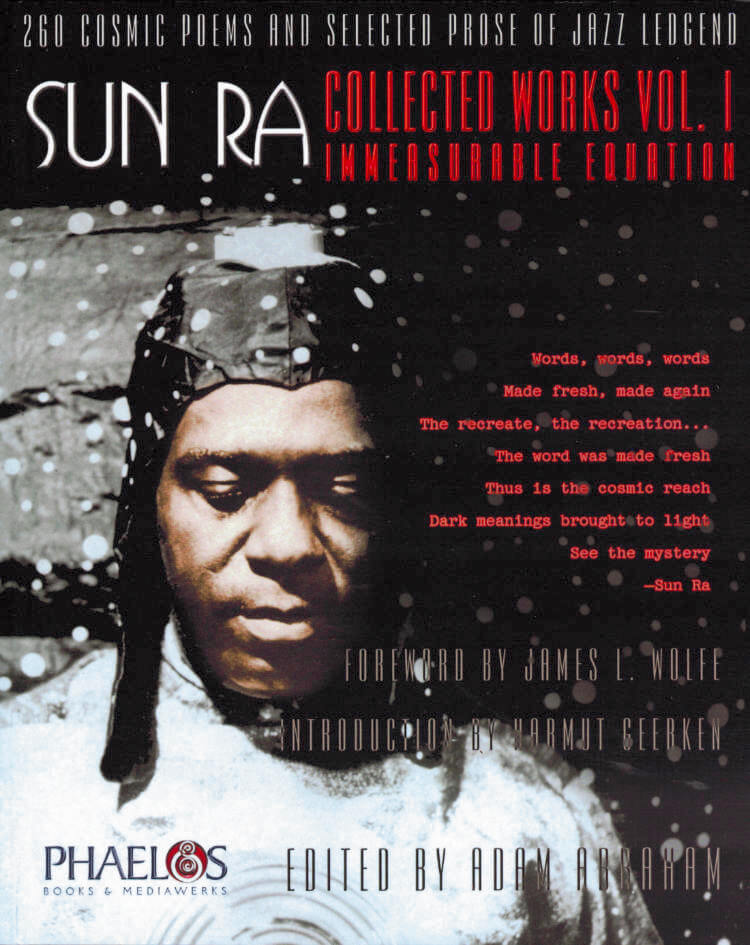
Immeasurable Equation
A stunning collection of 260 of Sun Ra's cosmic poems and selected prose.
Sun Ra's poetry leaves everything behind what's called contemporary, and flings out pictures of infinity into the outer space. These poems are for tomorrow.
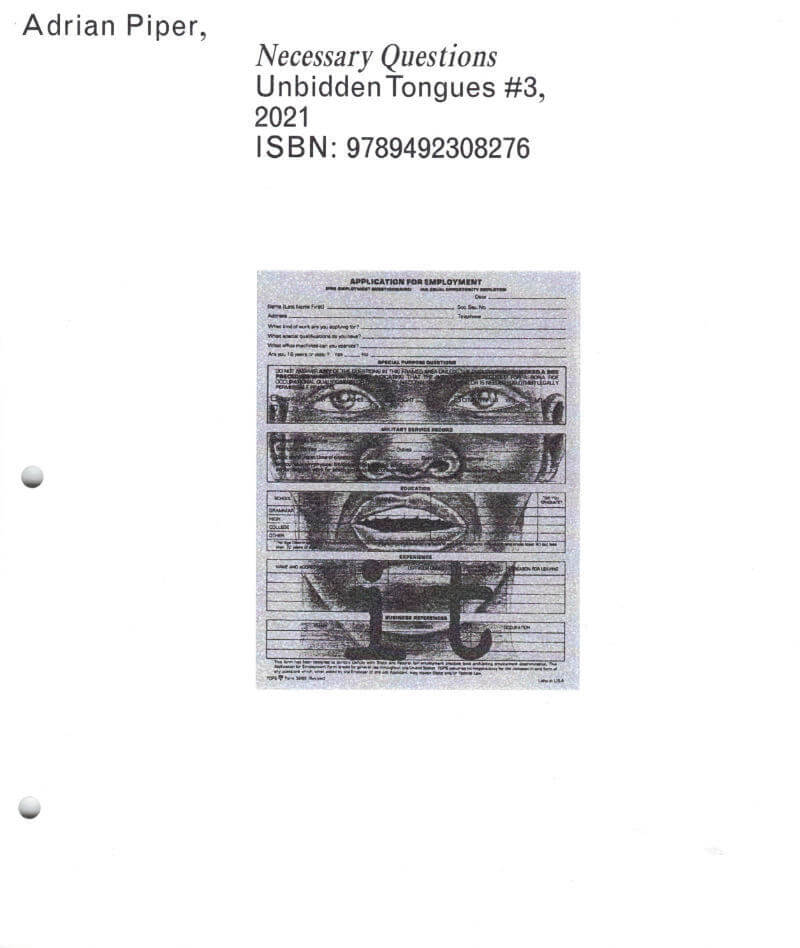
Adrian Piper: Necessary Questions
Consisting of an internal report written by conceptual artist and philosopher Adrian Piper in 1998, Necessary Questions takes Wellesley College, Massachusetts—where she was then on staff—as a case study in institutional racism and neglect. As such, the report could be read simply as an administrative document, though one drenched in meticulously clear advice that could still be, despite being written twenty-three years ago, taken up on a glaringly universal level. Yet the role the report went on to play in Piper’s life proves it’s not just a context-specific document, but an all-too-real example of exactly what it stood against: the ways in which the langue of protocol and the false façade of civility are utilised as tactics to ensure that one stays in their place.
It is the third title from Unbidden Tongues, a series edited by Isabelle Sully that focuses on previously produced yet relatively uncirculated work by cultural practitioners busy with questions surrounding civility and civic life—particularly so in relation to language.

Ruth Wolf-Rehfeldt: Introverse Arrangements
Introverse Arrangements is centred on the work of German artist Ruth Wolf-Rehfeldt who, despite only recently garnering attention for her work, is most known for a period of geometric and poetic typewriter drawings produced between the 1970s and 1990 while employed as an administrator for the German Democratic Republic.
It is the first title from Unbidden Tongues, a series edited by Isabelle Sully that focuses on previously produced yet relatively uncirculated work by cultural practitioners busy with questions surrounding civility and civic life—particularly so in relation to language.
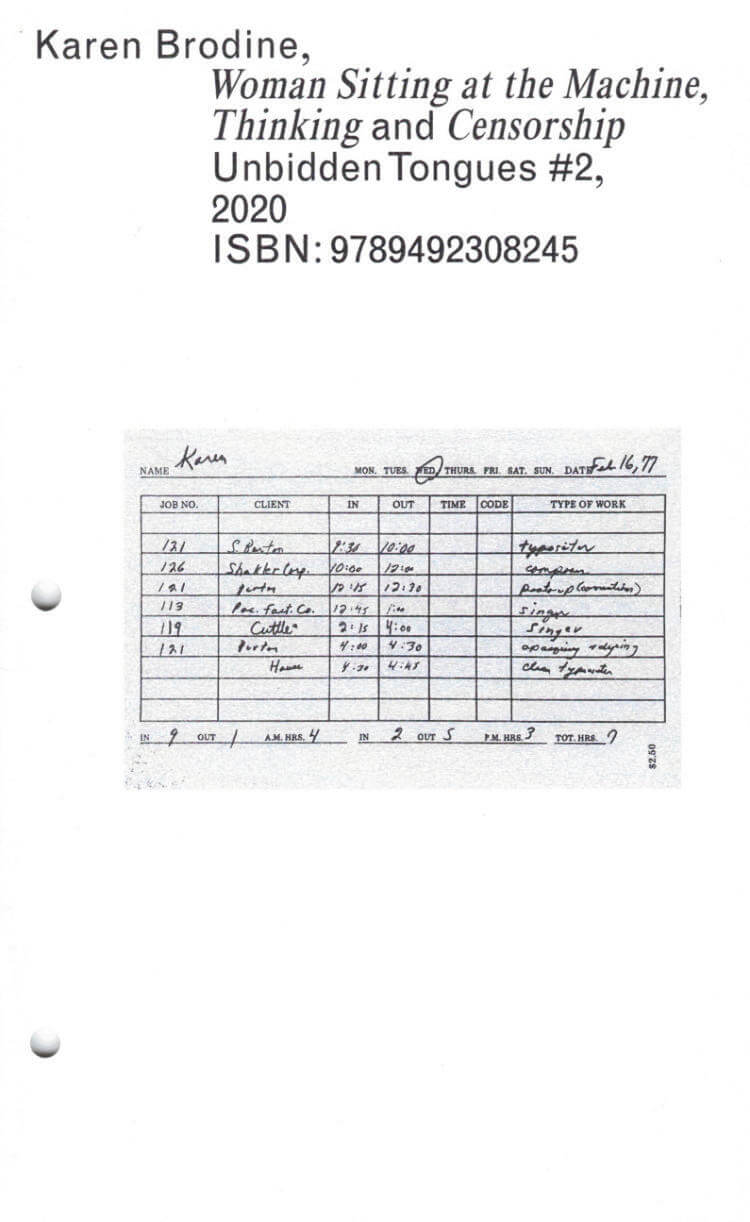
Karen Brodine: Woman Sitting At The Machine, Thinking And Censorship
Woman Sitting at the Machine, Thinking and Censorship is a two-part collection of poems by typesetter, activist and poet Karen Brodine. First published posthumously in 1990 as a reflection on her life as a typesetter, union organiser and lesbian, this series of ‘work poems’ chronicles labour struggles, both personal and collective, and draws on her experience growing up surrounded by socialist feminists immediately following the wrath of McCarthyism.
It is the second title from Unbidden Tongues, a series edited by Isabelle Sully that focuses on previously produced yet relatively uncirculated work by cultural practitioners busy with questions surrounding civility and civic life—particularly so in relation to language.
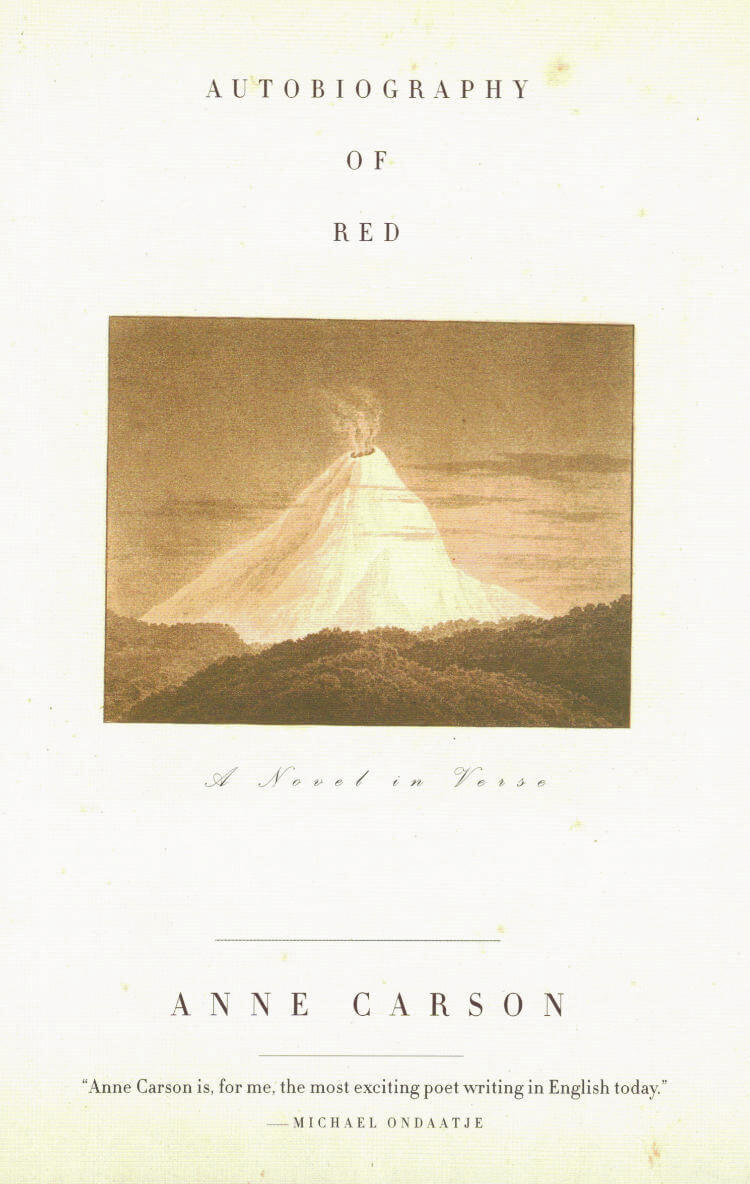
Autobiography of Red
Geryon, a young boy who is also a winged red monster, reveals the volcanic terrain of his fragile, tormented soul in an autobiography he begins at the age of five. As he grows older, Geryon escapes his abusive brother and affectionate but ineffectual mother, finding solace behind the lens of his camera and in the arms of a young man named Herakles, a cavalier drifter who leaves him at the peak of infatuation. When Herakles reappears years later, Geryon confronts again the pain of his desire and embarks on a journey that will unleash his creative imagination to its fullest extent.
By turns whimsical and haunting, erudite and accessible, richly layered and deceptively simple, Autobiography of Red is a profoundly moving portrait of an artist coming to terms with the fantastic accident of who he is.

Don't Call Us Dead
Award-winning poet Danez Smith is a groundbreaking force, celebrated for deft lyrics, urgent subjects, and performative power. Don’t Call Us Dead opens with a heartrending sequence that imagines an afterlife for black men shot by police, a place where suspicion, violence, and grief are forgotten and replaced with the safety, love, and longevity they deserved here on earth. Smith turns then to desire, mortality—the dangers experienced in skin, body, and blood—and a diagnosis of HIV positive. “some of us are killed / in pieces,” Smith writes, “some of us all at once.” Don’t Call Us Dead is an astonishing collection, one that confronts America where every day is too often a funeral and not often enough a miracle.
Danez Smith is the author of [insert] boy, winner of the Lambda Literary Award for Gay Poetry and the Kate Tufts Discovery Award. Smith has received fellowships from the McKnight Foundation and the Poetry Foundation, and lives in Minneapolis.
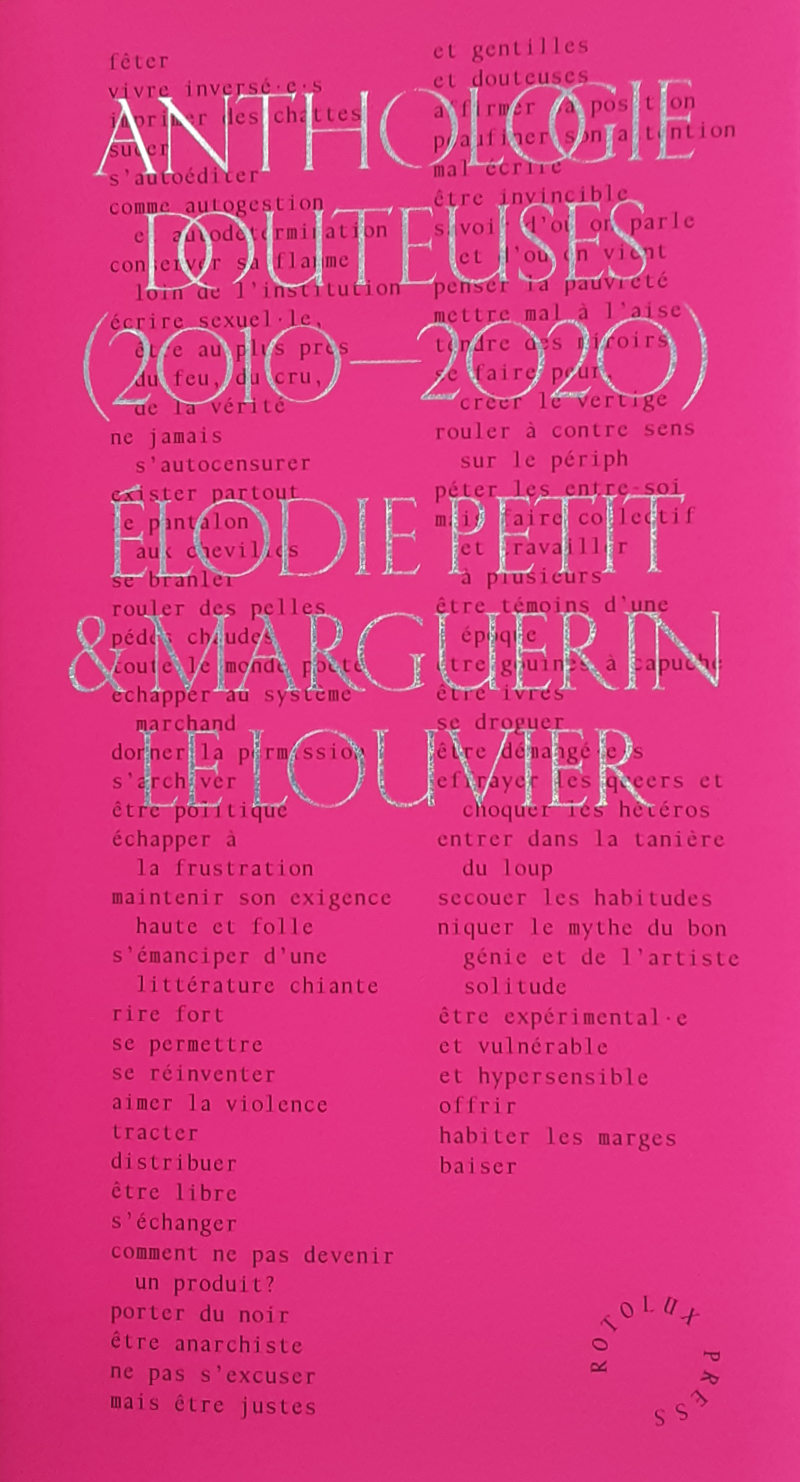
Anthologie Douteuses (2010—2020)
Élodie Petit, Marguerin Le Louvier
Élodie Petit et Marguerin Le Louvier écrivent des poèmes brûlants, sexuels, politiques et les autoéditent depuis leurs chambres sous la bannière commune des Éditions Douteuses. En une décennie, ils produiront des dizaines de textes courts et incisifs, imprimés en noir sur papiers colorés, parfois fluo, formats A5 ou A6 agrafés. À tirages variables, ils seront diffusés lors de soirées lectures-performances dans des bars ou des institutions artistiques, dans des salons de micro-éditions underground ou parfois sous le manteau. L’Anthologie Douteuses (2010—2020) rassemble pour la première fois ces textes en un seul volume, où l’arrangement chronologique donne à voir une certaine évolution de leur pratique littéraire sur dix ans.
« Des incendies savamment allumés au fuel de l’ironie, du fun et du détournement, de la critique sociale et sexuelle, de la pensée radicale et de la poésie merveilleuse. Des contre-feux révolutionnaires joyeusement embrasés par une gouine et un pédé mal repassés du col, qui écrivent, baisent, dessinent, dansent, et s’asseyent en gloussant sur le visage de tous les «culs cousus» et autres suceurs de vieux noyaux. (...) Oui, cette tendresse, leur tendresse, celle d’Élodie et de Marguerin, je crois, nous guérira de tout et leurs merveilleux textes, enfin réunis en un seul et même volume, il faudra les lire quand le courage de vivre, d’aimer et de faire la révolution viendra à nous manquer. Moi, c’est ce que je ferai. » Extrait de la préface d’Anne Pauly.
« Le feu, dans cet ouvrage, est partout invoqué, sussuré, explosé. Il se coule dans les pratiques poétiques queer, matérialistes et révolutionnaires des deux artisan·e·s de ce programme politique. Les éditions douteuses sont un mode d’emploi pour des alliances radicales trans-pédés-gouines-et-au-delà, un appel à une nécessaire profusion-collusion de nos appartenances, de nos situations, et à la production d’intervalles de revendications et de combats partagés. » Extrait de la préface de Thomas Conchou.

Women, the New York School, and Other True Abstractions
"Nelson's revision of the New York School makes it not only more diverse but also more resistant of defining tropes. By showing how a motley collection of poets and artists defied the gendered conventions of both the aesthetic status quo and the so-called experimental, Nelson restores the avant-garde to its raison d'etre: to lead us past orthodoxy to discovery."—Modern Painters
"Nelson has produced the kind of boundary-busting scholarship perhaps most likely to push the field toward greater clarity concerning its parameters, urgent questions, and dramatis personae."—American Literature
“After decades of listening (enthralled, of course) to the knitted ribbon-dress observations of John Ashbery, Frank O’Hara, and James Schuyler, finally, the other serious ladies of the necessarily ‘so-called’ New York School—Joan Mitchell, Barbara Guest, Bernadette Mayer, Alice Notley, and Eileen Myles—are invited to give their full-throated response. Smart as a whip and fun as an after-hours bar, Maggie Nelson gets fresh with heretofore queerly ignored matters poetic, aesthetic, and feminist. Rearranging the school’s classroom seating, illuminating details, all the while demonstrating how crucial not-caring is to care, Nelson remaps the ‘one flow’ of poetry. Let me be blunt: reading her bravura study’s like spying Joan Jett taking Helen Vendler for a joyride.”—Bruce Hainley
“This is a terrific and necessary book. . . . Maggie Nelson charts new paths for work on the New York School and on postwar experimental writing, and her book will be necessary reading for anyone working in the area—it will reach poets and other writers, visual artists, and scholars interested in the New York School and in avant-garde or experimental work; it will reach readers interested in women’s contributions to the arts, urban culture, and the history of New York City.”—Susan Rosenbaum, University of Georgia, author, Professing Sincerity: Modern Lyric Poetry, Commercial Culture, and the Crisis in Reading
“So many times over the years I’ve been asked, What’s it like to be a woman in rock music? It’s always been sort of a paralyzing question—to answer it is to give the question itself meaning. Maggie Nelson here opens it all up for examination with this incredibly timely and astute book.”—Kim Gordon of Sonic Youth
“Maggie Nelson is deft and revelatory in bringing sociological as well as psychological, stylistic, and political insights to bear on her title terms, ‘women’ and ‘the New York School.’ She lays bare an obscured history, performs imaginative and incisive readings of careers as well as books and poems, and foots her way with exciting skill through the overlapping minefields of professional, national, and sexual politics.”—Eve Kosofsky Sedgwick, author, A Dialogue on Love
In this whip-smart study, Maggie Nelson provides the first extended consideration of the roles played by women in and around the New York School of poets, from the 1950s to the present, and offers unprecedented analyses of the work of Barbara Guest, Bernadette Mayer, Alice Notley, Eileen Myles, and abstract painter Joan Mitchell as well as a reconsideration of the work of many male New York School writers and artists from a feminist perspective.
With contagious enthusiasm, Women, the New York School, and Other True Abstractions ranges widely and covers collaborations between poets and painters in the 1950s and 1960s; the complex role played by the “true abstraction” of the feminine in the work of John Ashbery, Frank O’Hara, and James Schuyler; the intricate weave of verbal and visual arts throughout the postwar period, from Abstract Expressionism to Pop to Conceptualism to feminist and queer performance art; and the unfolding, diverse careers of Mayer, Notley, and Myles from the 1970s to the present. Along the way, Nelson considers provocative questions of anonymity and publicity, the solitary and the communal, the enduring and the ephemeral, domesticity, boredom, sex, and politics.
By asking us to rethink the ways in which we conceptualize “schools” and “avant-gardes” and eventually drawing our attention to larger, compelling questions about how and why we read—and how gender and sexuality inform that reading in the first place—Maggie Nelson not only fills an important gap in the history of American poetry and art but also gives an inspired performance of the kind of lively, audacious, and personally committed criticism that befits her subject.
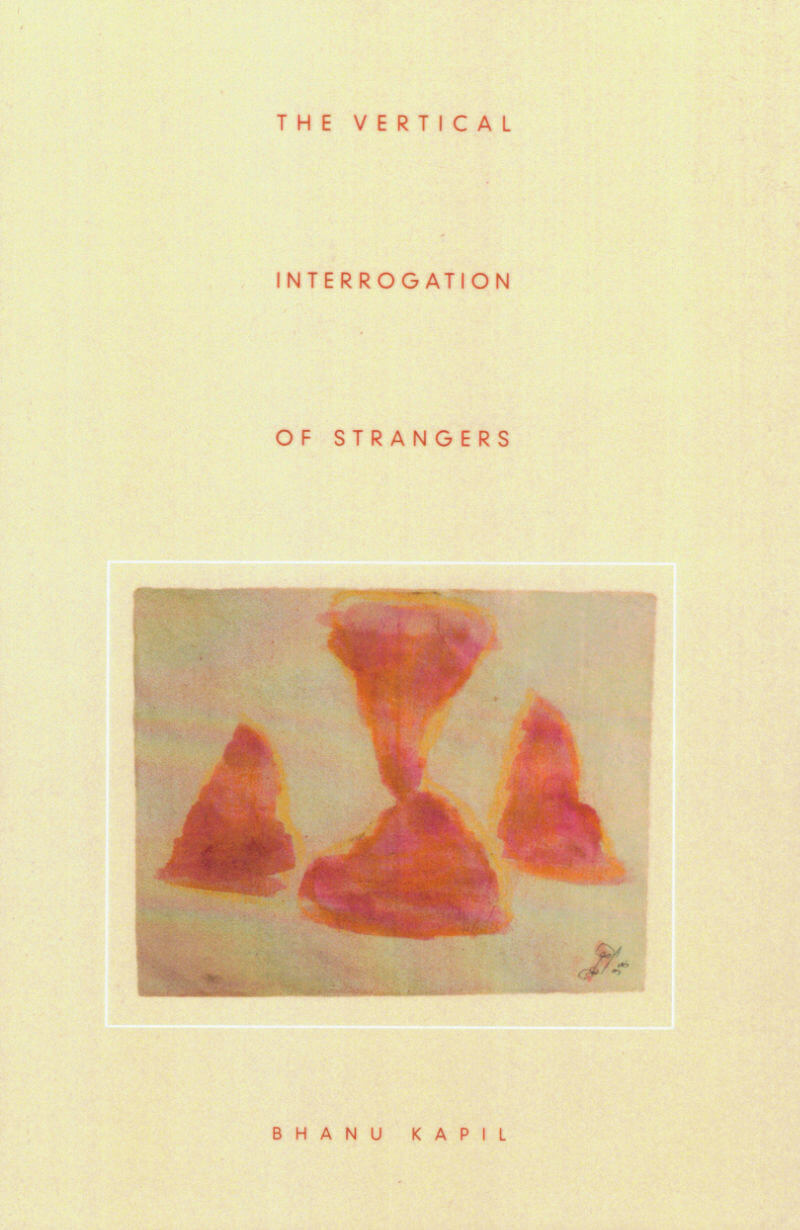
The Vertical Interrogation of Strangers
The Vertical Interrogation of Strangers blends the narratives of the travelog and the coming of age novel. It is written by a young Indian woman whose travels take her between homes in two countries, India and England, and through parts of the United States. These short pieces reveal new ways of belonging in the world and possibilities for an art grounded in a localized cosmopolitan culture.
Bhanu Kapil has written three full-length prose/poetry works, THE VERTICAL INTERROGATION OF STRANGERS (Kelsey Street Press, 2001), INCUBATION: A SPACE FOR MONSTERS (Leon Works, 2006), and HUMANIMAL [A PROJECT FOR FUTURE CHILDREN] (Kelsey Street Press, 2009). Born in the UK to Indian parents, Bhanu lives in Colorado, where she teaches in The Jack Kerouac School of Disembodied Poetics at Naropa University.
Published 2001
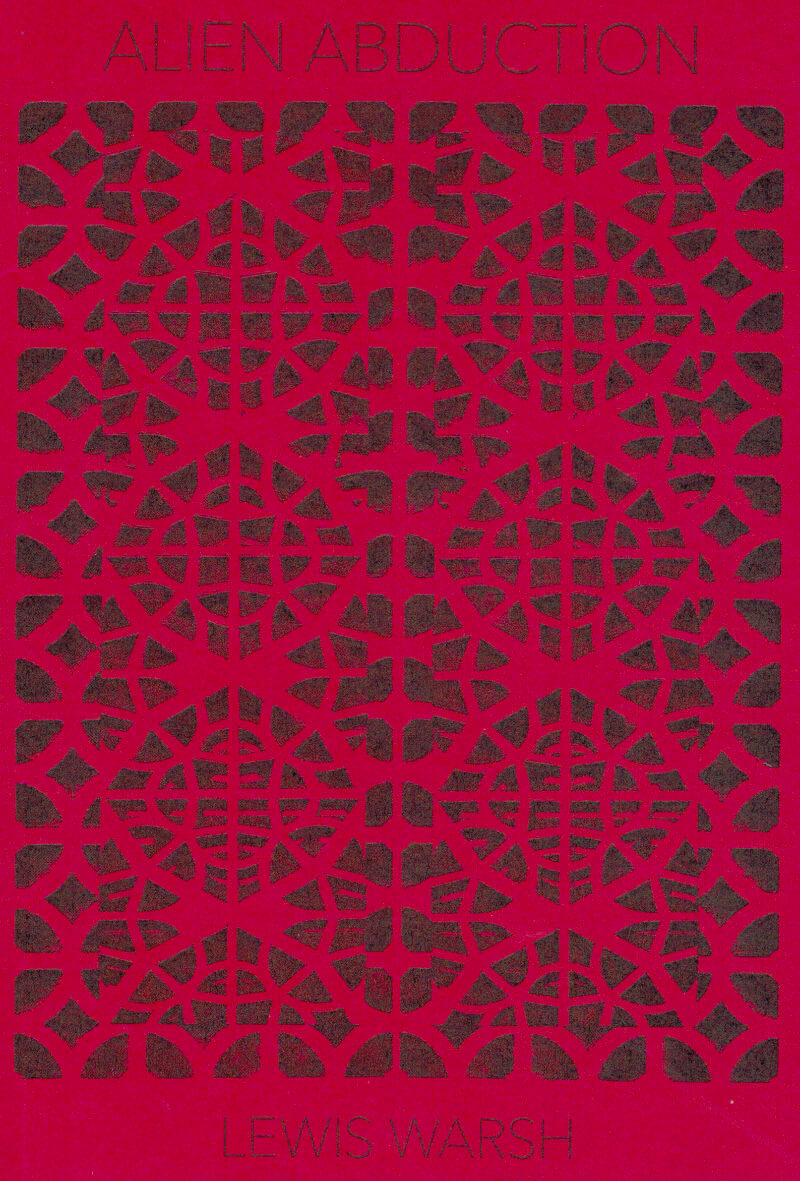
Alien Abduction
Alien Abduction is Lewis Warsh's first full-length collection of poems since Inseperable (2008). Warsh extends his exploration of the way fragments of thought and feeling and experience come together to form the illusion of a solid object that can also explode into a million pieces at any moment. The whole is never the sum of its parts. A kind of doomsday hopelessness both invigorates and subdues all questions of what it means to be a living and breathing human. These poems are personal, direct, and elusive at the same time. An accomplished fiction writer, it's no wonder that Warsh's poems are often guided by hidden narratives, stories inside stories, with no beginning, middle, or end.
Lewis Warsh is the author of over thirty volumes of poetry, fiction and autobiography, including ALIEN ABDUCTION (Ugly Duckling Presse, 2015), ONE FOOT OUT THE DOOR: COLLECTED STORIES (Spuyten Duyvil, 2014), A PLACE IN THE SUN (Spuyten Duyvil, 2014) and INSEPARABLE: POEMS 1995-2005 (Granary Books, 2008). He is co-editor of THE ANGEL HAIR ANTHOLOGY (Granary Books, 2001) and editor and publisher of United Artists Books.

Cinema Diva #1
Laura Automme, Marine Forestier and 1 more
This publication takes the form of a cinema program, CINEMA DIVA # 1 describes and illustrates 4 movies. The texts are both poetical and critical, expressing two different views from women authors. Let's experiment the female gaze through old and current movies that you must see! Let's talk about women directors and more!
Texts : Marine Forestier & Aurora Desq.
Illustrations : Laura Automne
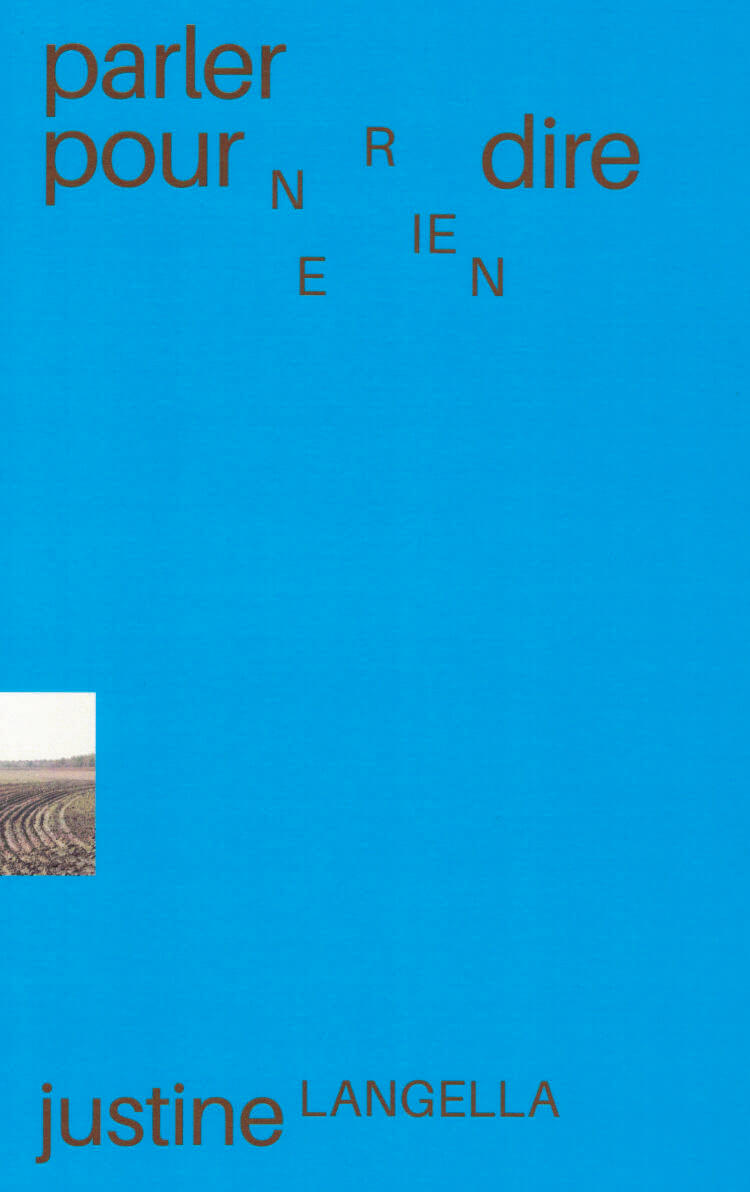
Parler Pour Ne Rien Dire
Parler Pour Ne Rien Dire is a collect of thirty five texts and twenty seven analog images, all produced in between April 2017 and April 2020. The book looks into ways to give access to a process of movement, to built a testimony of this world that we do inhabit through poetry and fiction, to erase borders and open the possibilities of each ones of us sensitivity.
'How do we get attached to a place who does not belong to us? What are we bringing home with us when we cross unknown places? How do we produce nostalgia?'
Design by Chloé Delchini in Brussels, Belgium
Printed at Pleine Pages, Bordeaux, France in 2021
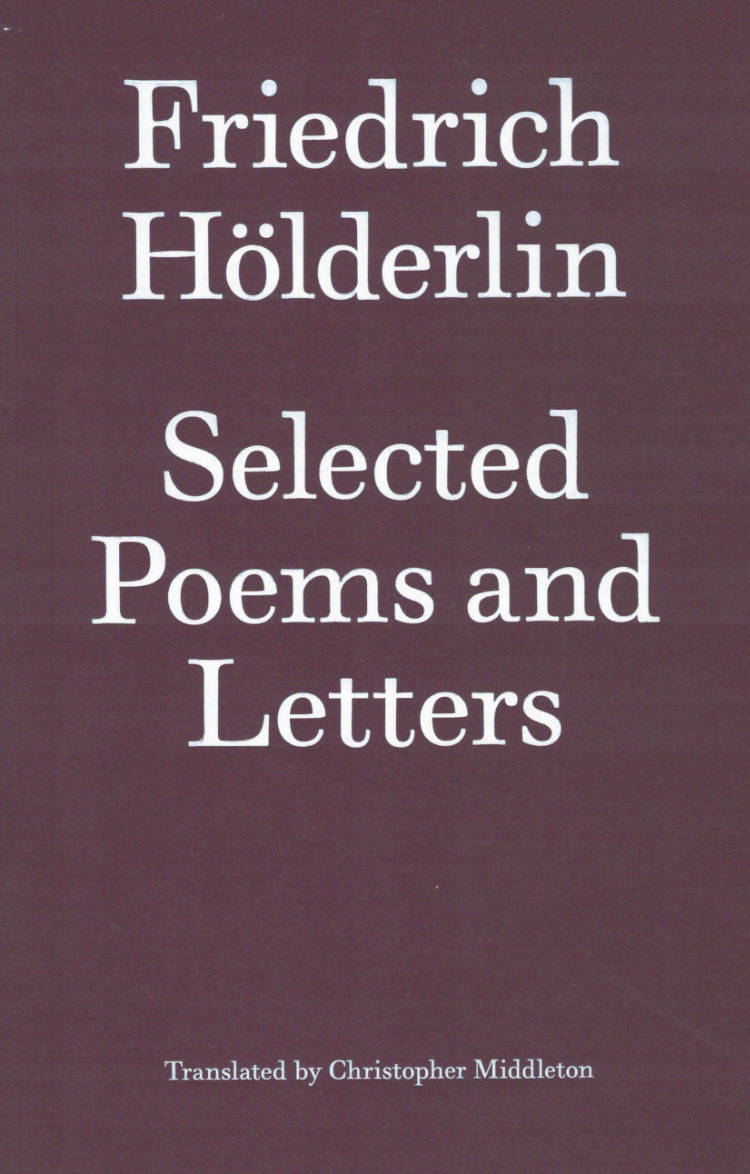
Selected Poems and Letters
This volume gathers all of Christopher Middleton’s Hölderlin translations, comprising thirty-one poems and fourteen letters. With an introduction, notes, and four essays on (translating) Hölderlin’s poetry.
“Christopher Middleton is an extraordinary translator, bringing his fine poet’s ear and inventiveness to the task. In addition to the brilliant versions, this volume offers Middleton’s essays on the poet and a selection from Hölderlin’s letters – a great gift to us all.” —Rosmarie Waldrop

The Against Nature Journal #2
Grégory Castéra, Aimar Arriola
This second issue revolves around the theme of migration, a crucial topic when addressing the forced displacement of LGBTQ+ people from contexts where “nature” is still used to criminalize consensual same-sex conduct or gender expression.
"We are honored to publish a new short essay by JASBIR K. PUAR that updates her work on homonationalism. In an interview with Indian activist ALOK HISARWALA GUPTA, we speak of how laws also cross borders, while legal researcher WARUGURU GAITHO and activist CARL COLLISON offer different approaches to report- ing on claims for asylum. FATIMA EL-TAYEB’s vibrant essay invites us to consider the meaning of a queer “we,” while iconic writer and filmmaker ABDELLAH TAÏA tackles everyday xenophobia in France. Poetry by GLORIA ANZALDÚA and DIVYA VICTOR offer personal reflections of homelessness and alienation, which resonate with the special visual contribution by artist ZOE LEONARD, whose photographs focus on the quotidian movements of crossing the river border between the US and Mexico. Historian ZEB TORTORICI addresses the notion of “against nature” through an engagement with the archive, while our Columns section brings news from Brazil, India, Kenya, Lebanon, Morocco, and the UK, in a season marked by the Covid-19 pandemic." — the editors

I'm in the bath on all fours
‘I’m in the bath on all fours, toward blue water (my nose is bleeding), I’m an ephemeral bubble of time waiting to be popped’ is an experimental archive of exhibition and performance documentation, seminar transcripts and (visual) essays from Well Projects 2019 programme of the same name.
Across three phases, IITBOAF,TBW(MNIB),IAEBOTWTBP invited pairs of artists and academics to collaborate and expand on notions of the sub-aqueous, engaging with the nature of water, embodied experiences and the deep dark in relation to community and commonality.
Contributors:
Flora Parrott, Lindiwe Matshikiza, Harriet Hawkins, Lucy Mercer, Amy Pettifer & Jennifer Boyd (SHELL LIKE) Madeleine Stack, Leyla Pillai, Alex Borkowski, Hannah Rowan, Rachel Squire, Rikke Berg Jensen, Korallia Stergides & Raphael Schulenburg.
I’m in the bath... programme was curated by Kris Lock & George Harding with support from Flora Parrott
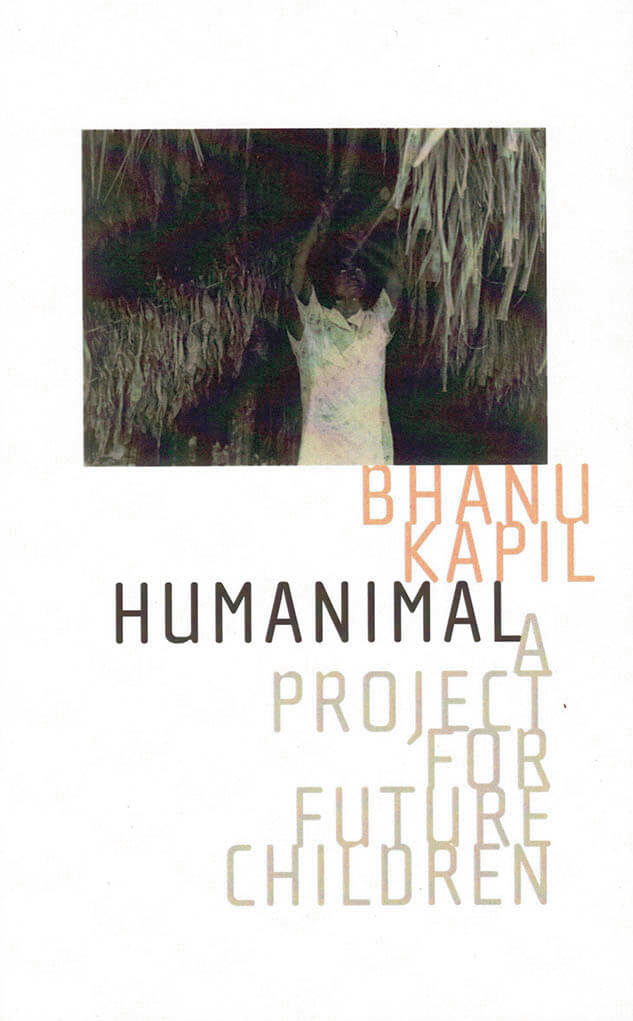
Humanimal: A Project For Future Children
In this prose document, Bhanu Kapil follows a film crew to the Bengal jungle to re-encounter the true account of two girls found living with wolves in 1921. Taking as its source text the diary of the missionary who strove to rehabilitate these orphans, through language instruction and forcible correction of supinated limbs, Humanimal functions as a healing mutation for three bodies and a companion poiesis for future physiologies.
Through wolfgirls Kamala and Amala, there is a grafting: what scars down into the feral opens out also into the fierce, into a remembrance of Kapil's father. The humanimal text becomes one in which personal and postcolonial histories cross a wilderness to form supported metabiology.
"Lucidly, holographically, your heart pulsed in the air next to your body; then my eyes clicked the photo into place. Future child, in the time you lived in, your arms always itched and flaked. To write this, the memoir of your body, I slip my arms into the sleeves of your shirt. I slip my arms into yours, to become four-limbed."
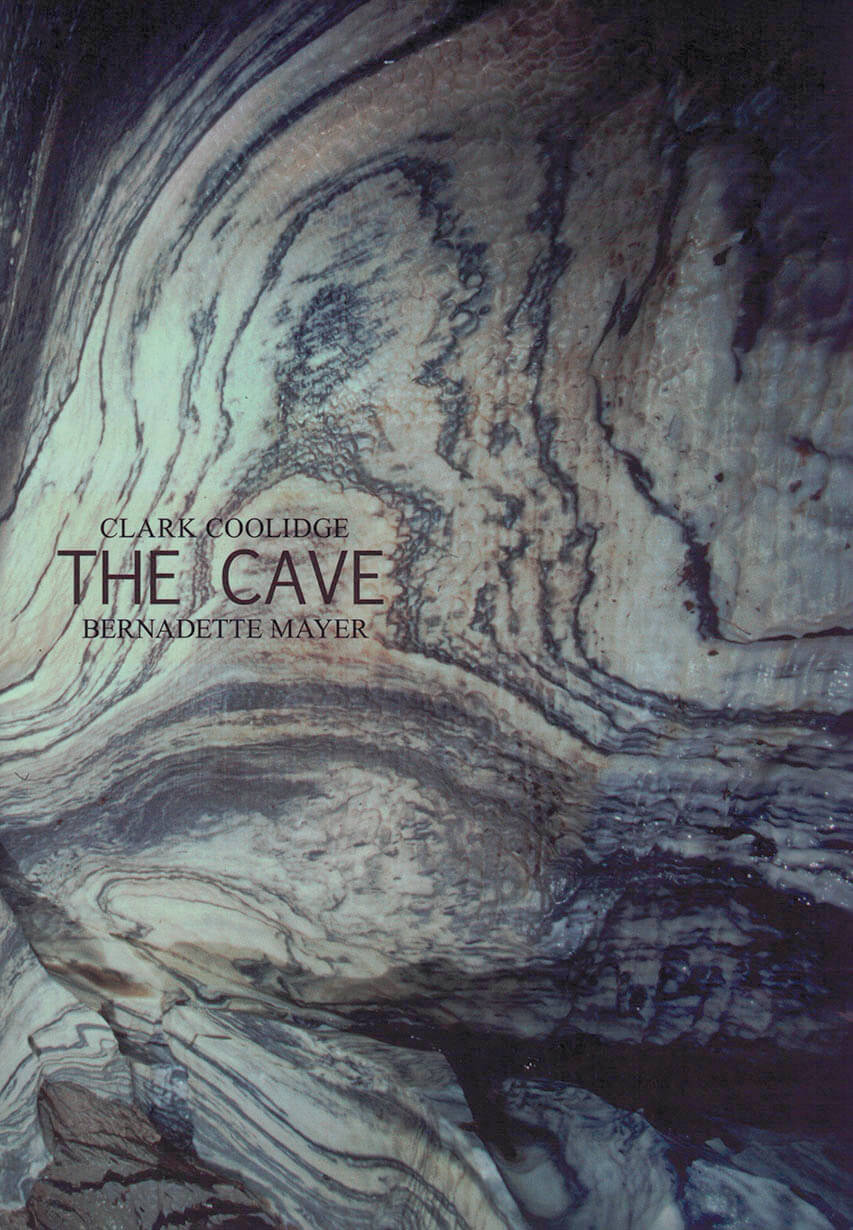
The Cave
Bernadette Mayer, Clark Coolidge
The Cave is a collaboration of prose, poetry, dialogue, and song alternately written by Clark Coolidge and Bernadette Mayer in their early thirties. Assembled between 1972 and 1978, The Cave explores the philosophy of Wittgenstein, the nature of language, and the connections between the present and past. It constantly challenges the reader to question reality, time, and the poets themselves. The work ranges from complex and imagistic rambles through imaginary landscapes to terse, clear accounts of exploring Eldon's Cave in western Massachusetts, the setting of several of Coolidge's poems. Like a mystery novel, The Cave draws the reader in with hints that all the strands weave together into a coherent picture.
Clark Coolidge and Bernadette Mayer have been writing for over fifty years, and they have both had an unquantifiable impact on the direction of experimental poetry. In the words of Marcella Durand, who provides an introduction to The Cave, "Coolidge and Mayer evidently shared a common mission in their writings to encompass consciousness, language, and the intricacy of physical/scientific/geologic structures, and to cross whatever fake borders had been set up between genres, materials, or even words themselves."
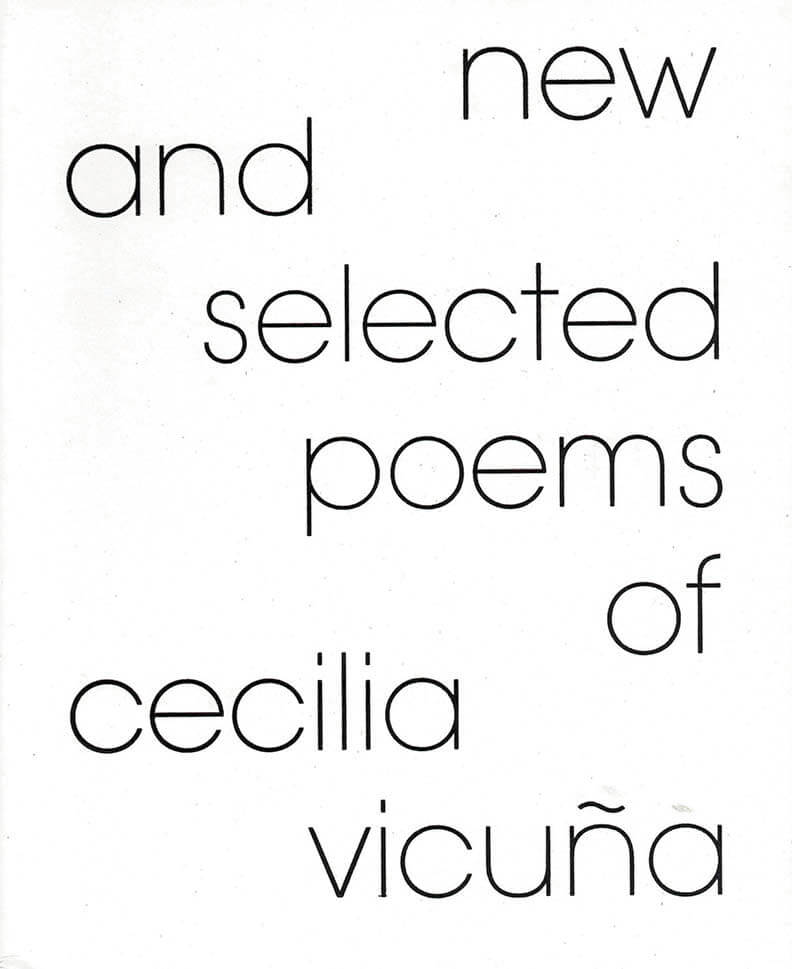
New and Selected Poems of Cecilia Vicuña
New and Selected Poems of Cecilia Vicuña is a telling of old cultures, modern nation states and lives in exile. Rodrigo Toscano calls Vicuña's poetry the outer out, beyond nation states, passed 'inter state' affairs, in other words, close in, as close as we get to our fair planet's sources, and to each other. In this bilingual collection, Vicuña and her translator, Rosa Alcalá, are artist witnesses to a natural world that is a storehouse of sacred words, seeds, threads and songs. Present everywhere, they are sources for a rebalancing in human relationships and for new forms of grace and healing. In Vicuña's vision, art is life and intimacy with it is transformative.
Cecilia Vicuña is a Chilean poet, artist and filmmaker. The author of twenty poetry books published in Europe, Latin America and the U.S., she performs and exhibits her work widely. A precursor of conceptual, impermanent art and the improvisatory oral performance, her work deals with the interactions between language, earth and textiles. Her recent books are NEW AND SELECTED POEMS OF CECILIA VICUÑA (Kelsey Street Press, 2018), SPIT TEMPLE: THE SELECTED PERFORMANCES OF CECILIA VICUÑA (Ugly Duckling Presse, 2012), Chanccani Quipu, a new artist book by Granary Books, and SABORAMI (ChainLinks, 2011). She co-edited The Oxford Book of Latin American Poetry (2009). Since 1980 she divides her time between Chile and New York.
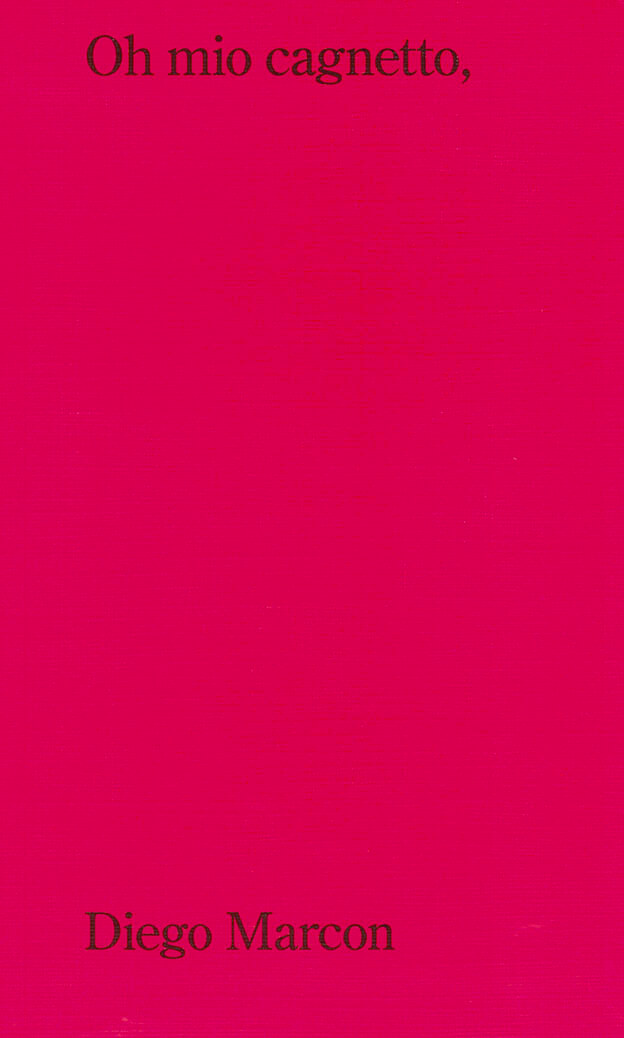
Oh mio cagnetto
Oh mio cagnetto is the artist's first book of writings, conceived as an artwork. It is a collection of 81 little poems that revolve around the missed and mourned figure of a puppy.
These short nursery rhymes all open with the same words and employ the same structure: two rhymed couplets in traditional meter. A seemingly naïve, childish voice speaks of violence, death and grief, yet never slips into pure plaintive lament. Balancing pathos with humor, the poems turn the puppy into a figure that evokes a broader sense of loss.
Oh mio cagnetto, was written between 2018 and 2020 and is now in the collection of MACRO in Rome. It intentionally plays on the ambiguity of its nature, as both a book distributed in conventional ways and an art object that belongs to a museum.
Diego Marcon (born 1985 in Busto Arsizio, Italy, lives and works in Paris) is a visual artist working mostly with film and video.

Blackspace: On the Poetics of an Afrofuture
Black artists of the avant-garde have always defined the future.
Blackspace: On the Poetics of an Afrofuture is the culmination of six years of multidisciplinary research by trans poet and curator Anaïs Duplan about the aesthetic strategies used by experimental artists of color since the 1960s to pursue liberatory possibility. Through a series of lyric essays, interviews with contemporary artists and writers of color, and ekphrastic poetry, Duplan deconstructs how creative people frame their relationships to the word, "liberation." With a focus on creatives who use digital media and language-as-technology, luminaries like Actress, Juliana Huxtable, Lawrence Andrews, Tony Cokes, Sondra Perry, and Nathaniel Mackey, Duplan offers three lenses for thinking about liberation: the personal, the social, and the existential. Arguing that true freedom is impossible without considering all three, the book culminates with a personal essay meditating on the author's own journey of gender transition while writing the book.
Anaïs Duplan is a trans* poet, curator, and artist. He is the founding curator for the Center for Afrofuturist Studies, an artist residency program for artists of color, based in Iowa City. He has worked as an adjunct poetry professor at the University of Iowa, Columbia University, Sarah Lawrence, and St. Joseph's College. He was a 2017-2019 joint Public Programs Fellow at the Museum of Modern Art and the Studio Museum in Harlem.
Published Oct 2020

Shame Space
Diaries of an avatar: a Bible-style artist's book of writings by Martine Syms
A new artist's book by California-based artist Martine Syms (born 1988), Shame Space explores the possibilities of narrative and identity, collecting journal writings by the artist from 2015 to 2017 in which she attempts to capture her shadow self, alongside image stills from the video project Ugly Plymouths. The text entries form the voiceover of Mythiccbeing (pronounced "my thick being'), a "black, upwardly mobile, violent, solipsistic, sociopathic, gender-neutral femme" digital avatar who has iterated across several of Syms' recent exhibitions. In Syms' installations, Mythiccbeing manifests variously in video, audio and as an interactive chatbot that responds to the viewer's communications with messages and animations.
In Shame Space, the character's autofictional, diaristic commentary is gathered into 15 chapters. Its design updates the Bible format with its A5 size, embossed leather-textured cover and silver edge painting. The Ugly Plymouths still-image selection was coded using a programming script, such that the design, like the chatbot's SMS responses, is an exercise in machine automation.
Published Dec 2020